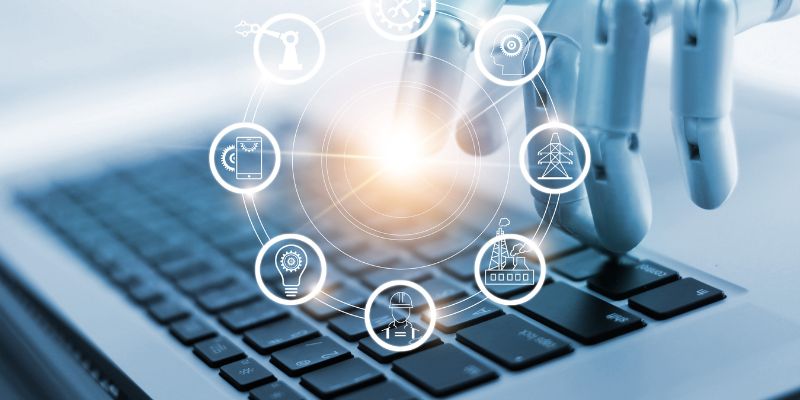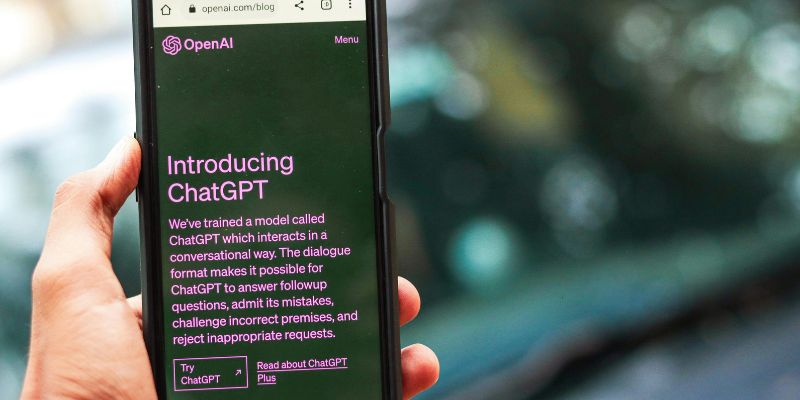When students at IESE Business School sat down for the Big Bank simulation, they knew it wasn't just another classroom exercise. Numbers, charts, and strategic choices filled their screens—but behind it all was an AI engine modeling the behavior of a real financial institution. Every single decision reshaped the simulated market, influencing profitability, risk, and reputational outcomes (Eureka Simulations, 2025).
For decades, MBA simulations were useful but predictable. Their pre-set scenarios behaved the same way every time. Today, AI has turned them into living systems—responsive, adaptive, and intelligent. These digital environments are redefining how future executives learn strategy, digital transformation, and decision-making under pressure—all in a safe but lifelike setting.
Scenarios That Evolve With You
The true game-changer in modern MBA simulations lies in their ability to respond dynamically to each decision made by the learner, creating a uniquely tailored learning journey every time. In traditional simulations, participants faced predetermined paths with limited variation. Today, AI enables a shift to highly adaptive environments where every choice triggers a cascade of changes in the simulated market, customer behavior, and operational realities.
For example, in the Big Bank simulation by Eureka, choosing to prioritize automation and AI adoption does not simply accelerate productivity metrics—it causes the market landscape to evolve around that choice. Regulatory compliance challenges emerge, investor sentiment fluctuates, and competitors react strategically. The simulation recreates how embracing innovation can simultaneously unlock opportunities and expose vulnerabilities, such as data privacy risks or ethical concerns, pressing participants to think holistically.
Conversely, electing a conservative approach shifts the narrative. Instead of rapid gains, the participant confronts the risks of stagnation: customers may initially value stability, but innovation accelerates elsewhere, leading to lost market share over time. These trade-offs play out in real time, reflecting the nuanced tensions executives face when balancing short-term performance against long-term competitiveness.
This continuous adaptation transforms simulations from static exercises into immersive, strategic labs where learners learn by doing, experiencing firsthand the consequences of their decisions in a richly textured, evolving environment. According to the AACSB (2025), this level of contextual, data-driven realism boosts decision-making efficiency by up to 30%, underscoring why 78% of business schools have embraced AI in their curricula (GMAC, 2024). The result is an experiential learning process that equips future leaders not just to manage complexity, but to thrive within it.
Feedback That Arrives When It Matters
In Eureka's virtual environments, participants no longer wait for instructors' reviews—they get real-time feedback while making decisions. Algorithms analyze their actions instantly and display the outcome of alternative choices within seconds.
Research shows that immediate feedback can increase knowledge retention by 50% compared to delayed evaluation (Deloitte, 2024). In simulations like Eureka Accounting Simulation, students receive automated, data-based performance insights as they complete accounting exercises (Eureka Simulations, 2025).
Learning through instant correction strengthens conceptual understanding. As the Journal of Educational Psychology (2023) explains, the timing of feedback determines how long knowledge sticks. When AI provides instant cause-and-effect insight, retention deepens—and learning becomes self-sustaining.

Analytics That Decode Every Decision
Beyond real-time corrections, AI reads performance patterns. It identifies progress, strengths, and learning gaps. With the Premier Print simulator, supply chain instructors at the National Open and Distance University (UNAD), the largest public university in Colombia, receive automated grading of the qualitative and quantitative results of student outcomes.
This adaptive learning approach echoes global trends: AI-driven platforms enhance personalization and student achievement (PSM Paris, 2025). Eureka's technology detects knowledge gaps and then adjusts the difficulty and content in real time, turning each session into a truly individualized learning journey.
Preparing Tomorrow's Business Leaders
Companies already recognize AI's transformative power. According to McKinsey (2024), 79% of organizations use AI for analysis or decision-making improvement. In business education, this trend mirrors a 500% surge in AI-related course enrollments in just one year (AACSB, 2025).
Eureka Simulations has brought this innovation to leadership training: more than 25,000 students worldwide have learned through its AI-enhanced simulations, blending competitive challenges, ethical dilemmas, and high-level strategy design (Eureka Simulations, 2025). Partnerships with top-tier institutions like IESE, IPADE, and IAE have turned these virtual environments into vibrant ecosystems of strategic learning.
As Eureka's team often emphasizes, "Every decision should feel like it costs something—even inside the classroom" (Eureka Simulations, 2025). That principle aligns with the World Economic Forum (2025) vision of digital reality learning—education that builds critical thinking, ethical judgment, and adaptability.

A Smarter Kind of Simulation
AI-enabled simulations are more than a teaching tool; they are strategic laboratories that mirror corporate life. The data speaks for itself: retention rates up to 75% (compared with 10–20% via lectures), 50% improvement in learning retention with AI-based feedback, and 30% better decision-making efficiency (Eureka Simulations, 2025; Deloitte, 2024; MIT Sloan Management Review, 2024).
Through simulations like Big Bank and Eureka Accounting Simulation, leaders don't just learn about complexity—they live it. They test business models, face ethical trade-offs, and witness the ripple effects of data-driven decisions.
And when they walk away, they carry not just knowledge—but experience.
Because in the classrooms of the future, AI doesn't replace human judgment—it refines it.
It teaches MBA graduates to think not only faster, but deeper. And in doing so, it prepares them for the decisions that will truly shape tomorrow's world.
Sources:
Eureka Simulations (2025); GMAC (2024); AACSB (2025); Deloitte (2024); McKinsey (2024); PSM Paris (2025); Journal of Educational Psychology (2023); MIT Sloan Management Review (2024); World Economic Forum (2025).



